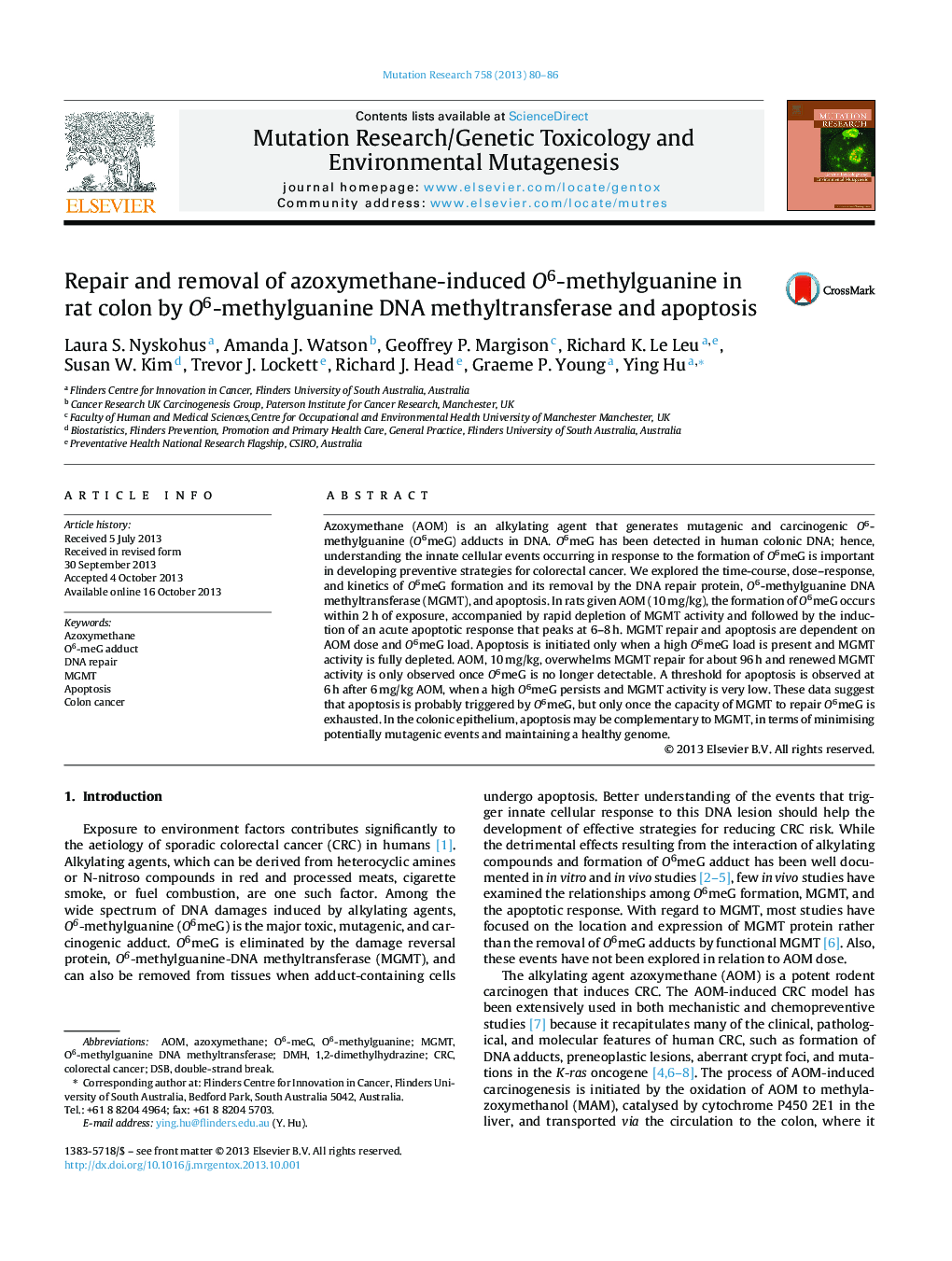| کد مقاله | کد نشریه | سال انتشار | مقاله انگلیسی | نسخه تمام متن |
|---|---|---|---|---|
| 2148023 | 1548602 | 2013 | 7 صفحه PDF | دانلود رایگان |

• Sequential cellular events occur rapidly in rat colons following AOM.
• The sequence of events is AOM-dose and O6meG adduct-load dependent.
• Apoptosis is an early response and follows a close relationship to O6meG.
• Higher O6meG and completion of MGMT activity is required for inducing apoptosis.
• Apoptosis may be triggered by O6meG and act as a complementary mechanism to MGMT.
Azoxymethane (AOM) is an alkylating agent that generates mutagenic and carcinogenic O6-methylguanine (O6meG) adducts in DNA. O6meG has been detected in human colonic DNA; hence, understanding the innate cellular events occurring in response to the formation of O6meG is important in developing preventive strategies for colorectal cancer. We explored the time-course, dose–response, and kinetics of O6meG formation and its removal by the DNA repair protein, O6-methylguanine DNA methyltransferase (MGMT), and apoptosis. In rats given AOM (10 mg/kg), the formation of O6meG occurs within 2 h of exposure, accompanied by rapid depletion of MGMT activity and followed by the induction of an acute apoptotic response that peaks at 6–8 h. MGMT repair and apoptosis are dependent on AOM dose and O6meG load. Apoptosis is initiated only when a high O6meG load is present and MGMT activity is fully depleted. AOM, 10 mg/kg, overwhelms MGMT repair for about 96 h and renewed MGMT activity is only observed once O6meG is no longer detectable. A threshold for apoptosis is observed at 6 h after 6 mg/kg AOM, when a high O6meG persists and MGMT activity is very low. These data suggest that apoptosis is probably triggered by O6meG, but only once the capacity of MGMT to repair O6meG is exhausted. In the colonic epithelium, apoptosis may be complementary to MGMT, in terms of minimising potentially mutagenic events and maintaining a healthy genome.
Journal: Mutation Research/Genetic Toxicology and Environmental Mutagenesis - Volume 758, Issues 1–2, 12 December 2013, Pages 80–86